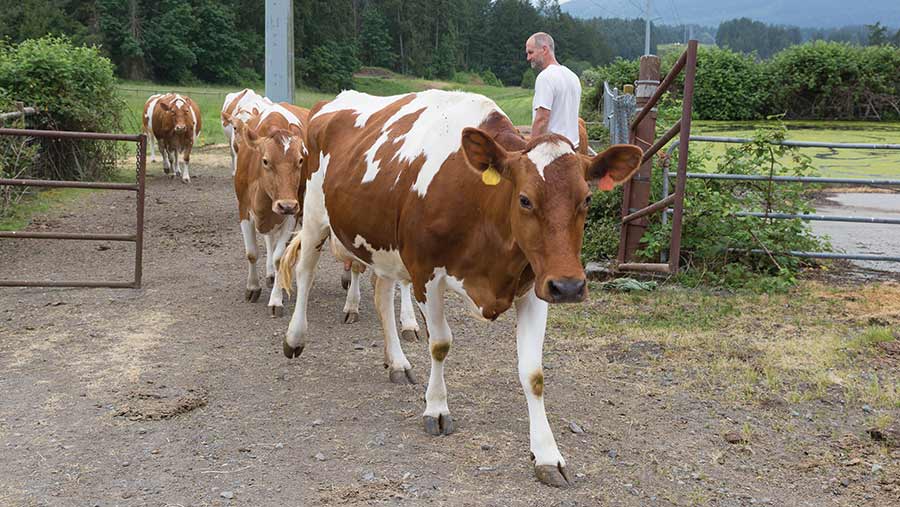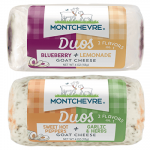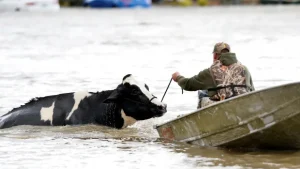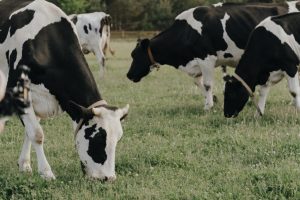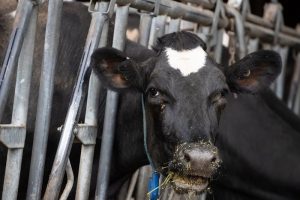
A small family dairy farm in the Cowichan Valley on Vancouver Island is back in production with a different breed of cow and an entirely new business model.
Caroline and Mark Nagtegaal rented land and milked cows for two years before buying Promise Valley Farm in 2006.
Here, they built up a small herd of Holsteins, which they ran for eight years before the pressures of the job and a young family proved too much.
They sold the cows and the milk quota, switching to pigs, broilers and laying hens and growing fruit and vegetables for a farmgate stall.
In time, however, they realised this way of farming was “not really our passion at all”. Caroline remembered having tasted some yoghurt made from Guernsey milk across the border in Washington State.
After a visit to the yoghurt plant, she was convinced processing was the way for them to create a viable dairy business.
They bought six Guernsey heifers, three of them in-calf, from Washington State, to form their new herd.
Farm facts: Promise Valley Farm
- 10ha (25 acres) owned; further 9ha (21 acres) rented
- Clay soils on undulating land
- Milks 13 Guernseys (expanding herd as milk/yoghurt sales grow)
- Year-round calving
- Daily quota of 9.08kg butterfat
- Average daily production 20kg a cow
- Average butterfat 5% and protein 3.5%
They lined up quota and put together a business plan for the processing plant and a farm shop. Once the heifers were in milk, Caroline set about testing yoghurt recipes.
“We got another six cows just before Covid hit and started shipping milk to Island Farms [a dairy co-op] straight away, while we were still working on the processing plant and all the approvals needed from the BC [British Columbia] Centre for Disease Control.
“It all took time. We opened the farm store in January 2022 selling yoghurt, and milk from a dispenser.”
Organic A2 milk and yoghurt
During this time, she and Mark had grown increasingly interested in regenerative and organic production and decided to go for organic certification with Ecocert Canada.
This three-year process created a lot more work, but the result was a unique selling point as the island’s first, and only, organic dairy farm, says Caroline.
She and Mark are also promoting the beta casein protein content of their Guernsey milk.
This contains only A2 beta caseins, said to be easier to digest than milk containing a mix of A1 and A2 beta caseins.
“It’s made the world of difference to customers who can’t consume [other cow’s] milk,” she says.
Four varieties of yoghurt are produced: plain (the most popular), vanilla bean, honey, and lemon.
Each week, 360 of the 625ml tubs (made of plant-based packaging) are produced for sale on farm and in shops as far away as Victoria and Nanaimo.
They get about CAD$1/litre (60p/litre) for milk collected in bulk, but up to $8/litre (£4.78/litre) when retailed as yoghurt.
Currently, direct milk sales account for 40-50% of production; yoghurt sales make up 30-40%; and the remainder goes to the Island Farms dairy co-op.
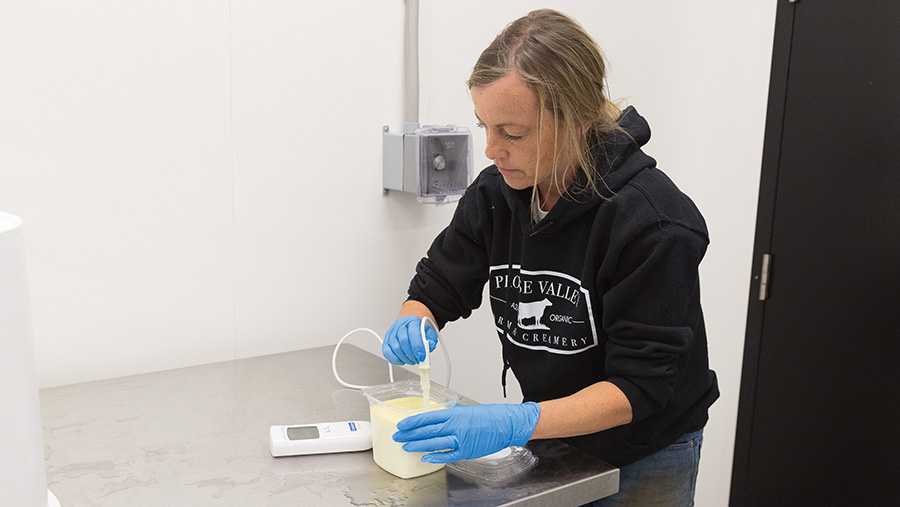
© MAG/Judith Tooth
Grazing management
Cows are fed a mix of peas, barley and oats in the parlour and graze from April to October.
Hay is made in May, with second and third cut conserved as round-bale silage.
Withholding chemical fertiliser in the first year of organic conversion was “painful”, says Caroline, but they applied cow and chicken manure and in year two, the land started to pick up.
“By the third year, the grass was the best it had ever looked.
“The land is benefiting from rotational grazing – although we are still working on getting numbers and rest periods at their most effective, and not having irrigation is challenging,” she says.
Last year, 30C temperatures lasted into November and winter rainfall was very low.
Some years, there is no rain from May to October, adds Mark.
“We’re trying to adapt by protecting the soil,” he says. While soil organic matter is a healthy 8.9%, further improvements are planned, including liming, to lift the slightly acidic soil pH.
“This should improve establishment of legumes in the grassland to produce a higher-protein forage and fix nitrogen.
Seasonal production
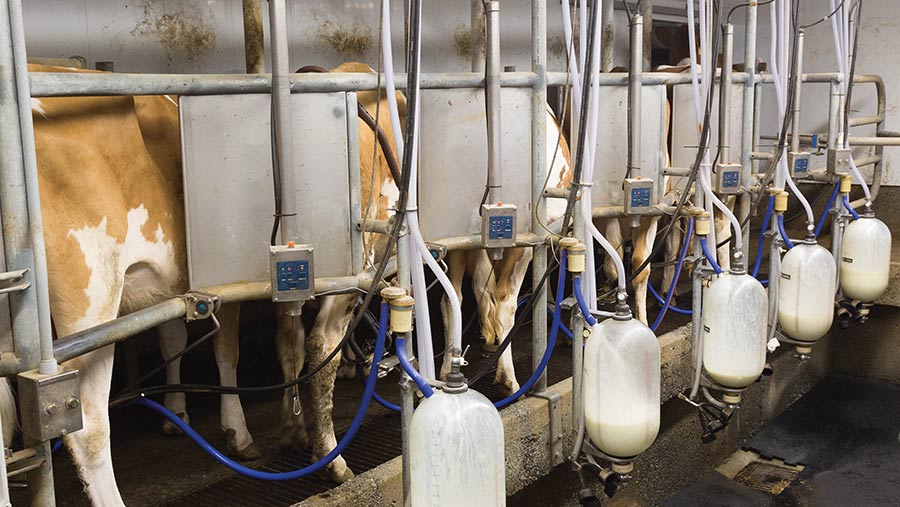
© MAG/Judith Tooth
Mark argues a yearly quota would give them more flexibility than their daily one to develop their business.
“In future, if we could become a closed producer/processor and pursue more of a seasonal model; we could have a short break from milking and take more advantage of the seasonal grass cycle.
“It would allow for a more sustainable management model for a small family farming business,” he says.
Farm shop sales
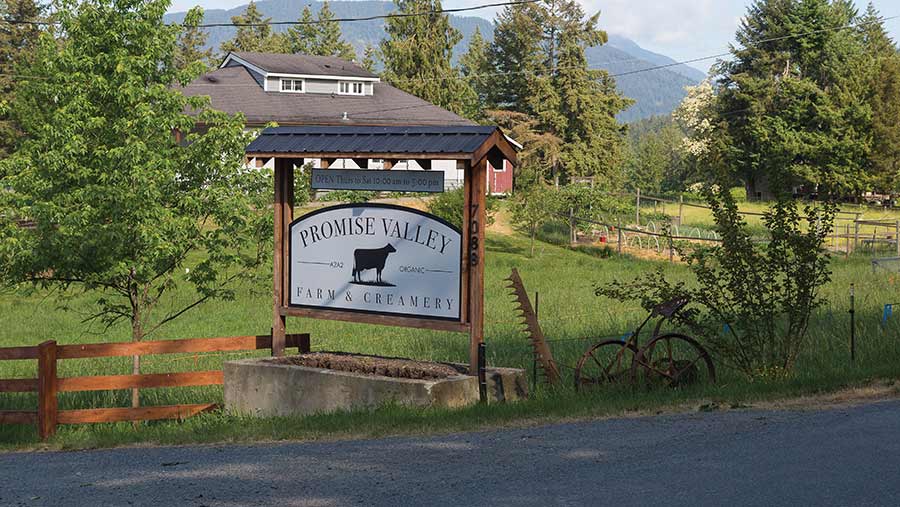
© MAG/Judith Tooth
The farm shop is open three days a week. As well as milk and yoghurt, it sells beef from the farm’s Guernsey cross Angus cattle, eggs and cut flowers produced on farm.
Guernsey milk soap and hand repair balm, made by Caroline; and a range of products, such as jam and honey, from local farms are also on sale.
